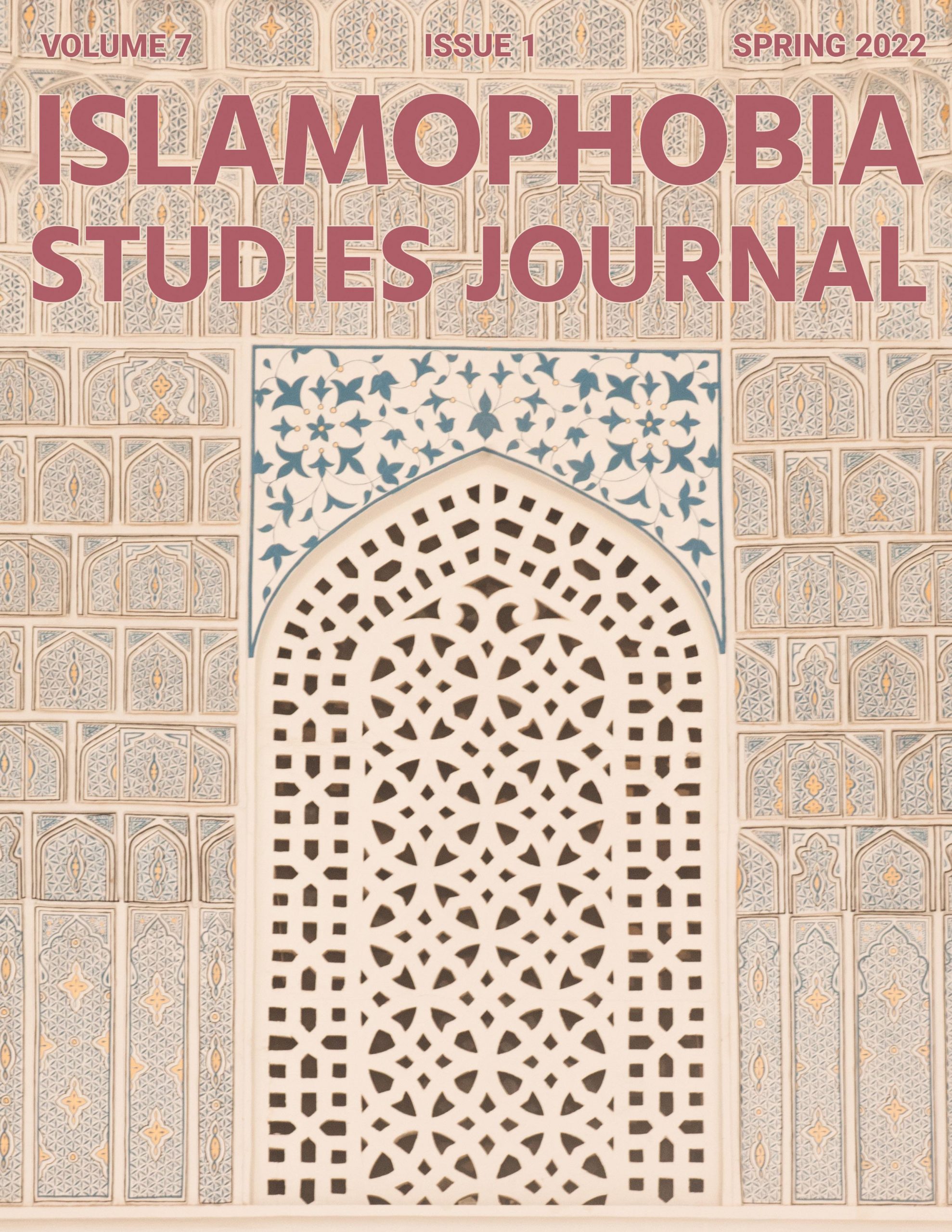
Islamophobia Studies Journal
Islamophobia Studies Journal is an bi-annual, double-blind peer-review journal that focuses on the critical analysis of Islamophobia and its multiple manifestations in our contemporary moment.
Print ISSN: 2325-8381
Online ISSN: 2325-839X
The Journal is produced in collaboration with the Islamophobia Research and Documentation Project at the Center for Race and Gender at Berkeley, a research unit dedicated to the systematic study of Othering Islam and Muslims. ISJ is an interdisciplinary and multi-lingual academic journal that encourages submissions that theorizes the historical, political, economic, and cultural phenomenon of Islamophobia in relation to the construction, representation, and articulation of “Otherness.” ISJ is an open scholarly exchange, exploring new approaches, methodologies, and contemporary issues.
The journal is bi-annual, publishing online and in print in April and October.
The Journal is produced in collaboration with the Islamophobia Research and Documentation Project at the Center for Race and Gender at Berkeley, a research unit dedicated to the systematic study of Othering Islam and Muslims. ISJ is an interdisciplinary and multi-lingual academic journal that encourages submissions that theorizes the historical, political, economic, and cultural phenomenon of Islamophobia in relation to the construction, representation, and articulation of “Otherness.” ISJ is an open scholarly exchange, exploring new approaches, methodologies, and contemporary issues.
The Islamophobia Research & Documentation Project (IRDP) focuses on a systematic and empirical approach to the study of Islamophobia and its impact on Muslim communities. Today, Muslims in the U.S., parts of Europe, and around the world have been transformed into a demonized and feared global “other,” subjected to legal, social, and political discrimination. Even at the highest levels of political discourse, the 2008 U.S. Presidential elections, Islamophobia took center stage as a sizeable number of Americans expressed fear that Barack Obama, the first African American president, is somehow a closet Muslim. Newspaper articles, tv shows, books, popular movies, political debates, and cultural conflicts over immigration and security produce ample evidence of the stigmatization of Islam within dominant culture.
Editorial Board
Hatem Bazian, Islamophobia Research and Documentation Project, University of California, Berkeley.
Maxwell Leung, Grinnell College and California College of the Arts.
Munir Jiwa, Center for Islamic Studies, Graduate Theological Union.
Rabab Abdulhadi, Race and Resistance Studies, San Francisco State University.
Ramon Grosfoguel, Department of Ethnic Studies, University of California, Berkeley.
Editorial staff members
Paula Thompson, Copy Editor, University of California, Berkeley.
Rhonda Itaoui, Copy Editor, University of California, Berkeley.
Umer Mahmood, Marketing and Circulation.
Hani Kharufeh, Design and IT.
Please see the submission guidelines here.
The ISJ encourages submissions that closely interrogate the ideological, discursive, and epistemological frameworks employed in processes of “Otherness”—the complex social, political, economic, gender, sexual, and religious forces that are intimately linked in the historical production of the modern world from the dominance of the colonial/imperial north to the post-colonial south. At the heart of ISJ is an intellectual and collaborative project between scholars, researchers, and community agencies to recast the production of knowledge about Islamophobia away from a dehumanizing and subordinating framework to an emancipatory and liberatory one for all peoples in this far-reaching and unfolding domestic and global process.
Editorial Correspondence can be addressed to hatemb@berkeley.edu
Publisher Pluto Journals, evek@plutojournals.com
The journal is bi-annual, publishing online and in print in April and October. The electronic journal is archived in Portico. The website for the Islamophobia Research & Documentation Project can be found here.
The journal is Open Access and the Open Access statement, Open Access license terms, copyright terms as well as a statement on its absolute lack of author charges can be found here.
The journal became Open Access on 1 January 2021 and is published open access on ScienceOpen. All journal material published prior to 1 January 2021 is also published, open access on ScienceOpen. This means the Reuse rights of published material is all under the open CC BY 4.0 license as stated here.
The journal adheres to the ethical standards endorsed by the Committee on Publication Ethics (https://publicationethics.org/). In particular:
- We expect all authors to state in their article if they have a conflict of interest which could potentially bias their opinions – for example funding or employment.
- All named authors on the articles should confirm that they have jointly participated in the research and writing of the article, and that no author has been omitted from the list of authors.
- We require authors to warrant that their articles are original, have not been previously published, and do not plagiarise or otherwise copy someone else’s work without attribution. (If the article is a translation, we are happy to consider this for publication but the authors must inform the editors on submission.)
- We also require authors to warrant that their article does not defame, libel, or bring another person into disrepute, and neither does it contain anything illegal (e.g. copyright infringing)


